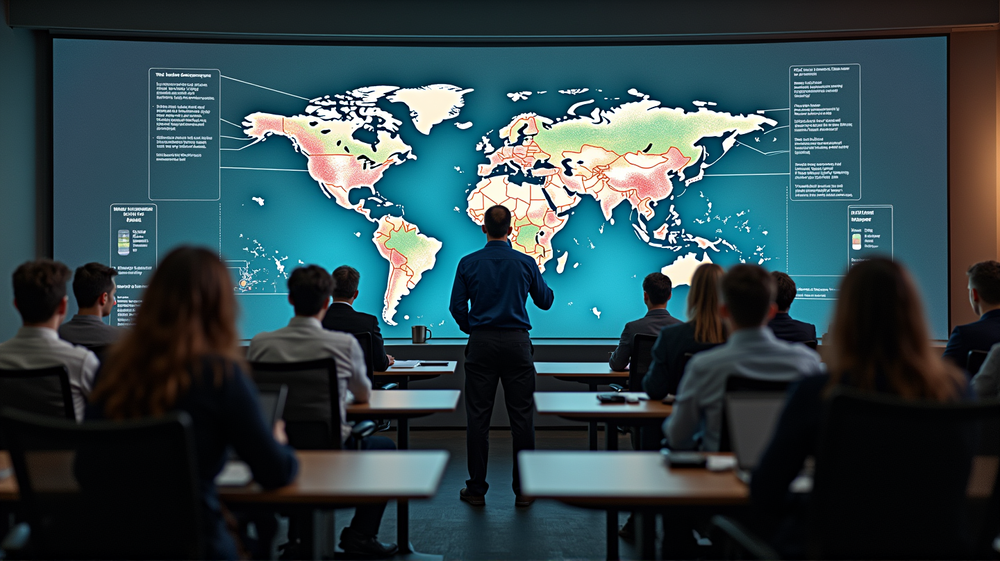Trump's Tariffs: Impact and Insight Across Industries
Amidst the seismic shifts triggered by President Donald Trump’s announcement of sweeping tariffs, an economics professor sheds light on what lies ahead for industries at home and abroad. As stated in MPR News, these tariffs are not merely numbers on paper but pulses set to reverberate through the heart of Minnesota’s economy and beyond.
The Tariff Tidal Wave
President Trump’s bold move to impose a 10% tax on imports, climbing to 34% for Chinese goods and 20% for those from the European Union, is poised to fundamentally alter trade dynamics. This decision, propelled by the desire to recalibrate trade deficits, has sparked a gamut of reactions from economic experts across the nation.
Allison Luedtke, the department chair of economics at Saint Olaf College, voices concerns echoed by many in her field. “I have yet to find an economist who thinks this is the move,” she remarks, reflecting the unease permeating the economic community.
Predicting the Ripple Effects
The intricate web of global trade means that every sector, from agriculture to technology, is entwined with these new policies. Luedtke underscores the complexity of this scenario: “Every industry will be impacted.” Minnesota, a hub for medical devices, finds itself on the precipice of significant change. The presence of transnational supply chains means that as tariffs rise, so too do production costs.
The Human Element in Economic Equations
For consumers, the effects of these tariffs manifest in tangible ways. Prices are predicted to rise, forcing households to reassess their spending habits. Yet, Luedtke urges caution against overreacting. “Stocking up can exacerbate shortages,” she advises, promoting a moderate, measured response to avert exacerbating market volatility.
A Global Game of Strategy
The overarching question remains: Is there a method to this fiscal madness? President Trump contends that the long-term outcome will justify the short-term disruptions. The hope is that these tariffs will invigorate domestic production, driving a return to American-made resources. However, Luedtke highlights the value of international trade, stating, “Trade creates value. If it didn’t, we wouldn’t do it.”
Educating Tomorrow’s Economists
In classrooms across Minnesota, the next generation of economists is grappling with these changes, led by educators like Luedtke who stress the foundational principle that trade enriches all involved. By fostering an understanding of the nuances of tariffs, they prepare students to navigate and eventually arbitrate the complex landscapes of global economics.
As the dust begins to settle, the true impact of these tariffs will continually unfold. Experts remain divided in their predictions, but one consensus emerges: the world of trade, forever in motion, has embarked on a new chapter. How this narrative continues will define the economic tapestries for generations to come.




